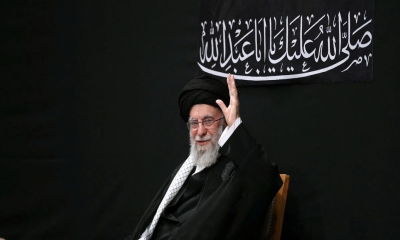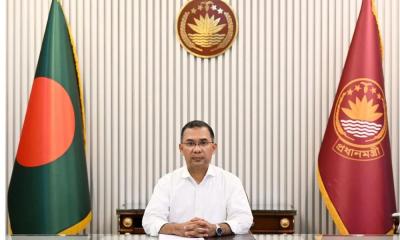Members of Bangladesh's ethnic minority communities have reiterated their demand for constitutional recognition.
They also demanded measures to protect their land, languages and cultural heritage, reports bdnews24.com.
The demands came from a human chain arranged by Bangladesh Adivasi Union marking the 'International Day of the World's Indigenous Peoples' on Saturday.
Speakers at the event called for the swift implementation of the Chattogram Hill Tracts Peace Accord, the rehabilitation of those who were displaced from their land and the formation of a land commission, along with a 100-day job creation programme and permanent rationing for them under the KaBiKha scheme, which provides food to the poor in exchange for work.
They also railed against the decision to evict ethnic minorities in Tangail's Madhupur in order to make way for the development of an eco-park and a lake.
"We demand an end to the violence that ethnic groups are facing in the Chattogram Hill Tracts, including Madhupur, Sherpur, Mahadevpur, Dinajpur, Naoga and Sirajganj. We urge the government to implement the peace accord immediately," said Aslam Khan, the union's adviser.
"The government's has decided to evict indigenous people and clear the forest in Madhupur to build an eco-park and a lake. We urge the government to retract the decision. If the plans are not withdrawn, then the Bangladesh Adivasi Union will stage a sit-in in Madhupur with indigenous people from all over the country and hold a nationwide protest in September."
Rakhi Mong, vice president of the union, referred to Article 6(2) of the Constitution, which states that all natives of Bangladesh are to be known as 'Bengalis', and said the provision is "undemocratic", "unconstitutional" and a "gross violation of human rights".
“Bangladesh is inhabited by various tribal groups. Their constitutional rights, which have been grossly neglected, must be recognised," she said.
"Tribal people are generally poor and landless. They are also deprived of the right to employment, health and housing. Indigenous women continue to face various forms of oppression, exploitation and discrimination, including violence and rape. The government should form a commission to protect them.”













-20260304091720.webp)






-20260303080739.webp)








-20260225072312.webp)





-20260228064648.jpg)
